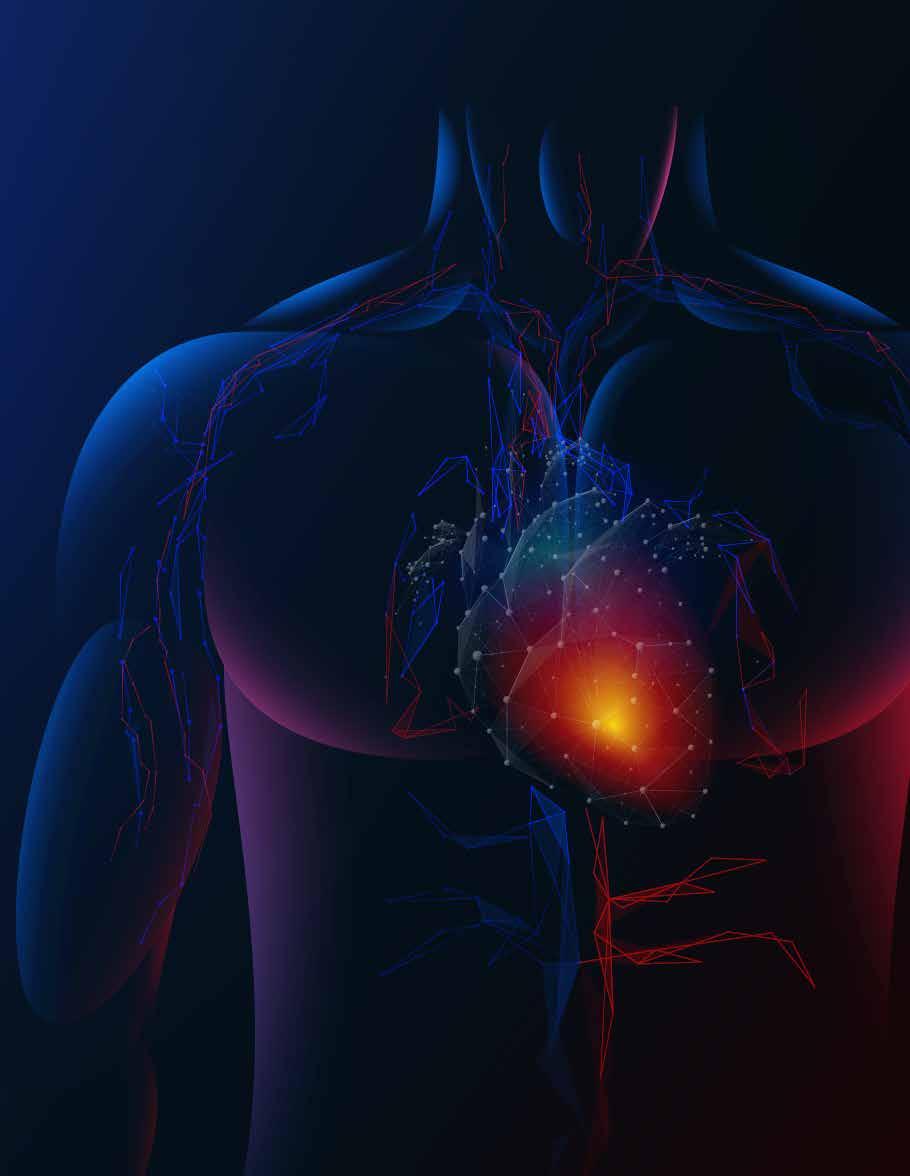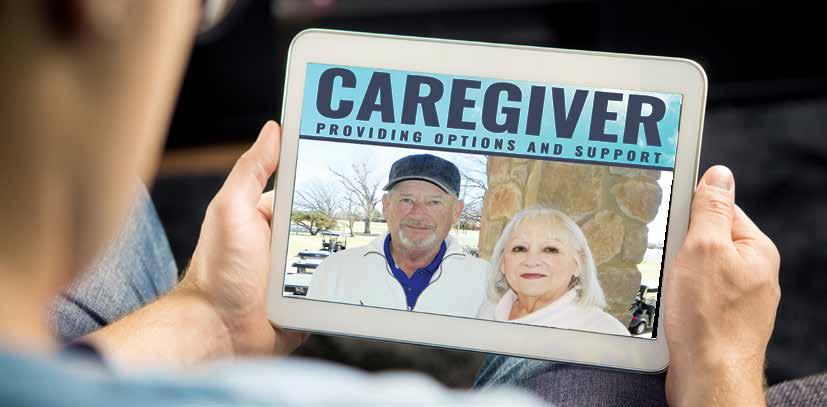
5 minute read
Are You At Risk?
I recently read a post on our Facebook page of a gentleman sharing the story of his neighbor who had died of a heart attack. Because he was fearful of possibly catching COVID-19 at the hospital, he did not seek medical attention. The warning signs were there - but his fears (of contracting a potentially deadly disease) were his actual death sentence. I was so struck by how, in times of panic and fear, logic and rational thinking don’t seem to be a valid option.
Concerned that others might be doing the same under stress, I reached out to Dr. C.V. Ramana in Oklahoma City to provide information on the warning signs that everyone needs to take very seriously. Thank you Dr. Ramana for giving your time and expertise to provide this life saving information. May it help sharpen our awareness of when it is truly time to contact a medical professional. When it is truly life-threatening.
I wanted to share a little of Dr. Ramana’s background with you. He is a vascular and interventional radiologist at Naadi Health with more than 20 years of practice experience. He has expertise in all areas of vascular and interventional radiology, specializing in treatment of peripheral vascular disease and venous insufficiency. He utilizes the latest technologies and techniques for revascularization and limb salvage. Dr. Ramana has a Ph.D from Yale University and his MD is from Case Western Reserve University in Cleveland, Ohio (where he pursued residency training in Internal Medicine and Diagnostic Radiology; subsequently completing a fellowship in Vascular and Interventional Radiology at the prestigious Cleveland Clinic).
Taking Symptoms Seriously... Are You At Risk?
By Dr. C.V. Ramana
What Is Atherosclerosis, Coronary Or Peripheral Arterial Disease (CAD, PAD)? There are many synonyms for this disease or abnormality – it refers to the narrowing of arteries that provide blood flow from the heart to the entire body. This is oxygen and nutrient rich blood providing essential sustenance to all areas of the body. The narrowing generally worsens over time, and can progress to complete blockage if there is no intervention.
WHO IS AT RISK FOR IT?
Typically, people over the age of 50 (men are more commonly affected than women). Also, people with: • Diabetes • Hypertension • Tobacco use/abuse ` • High cholesterol • Obesity • Sedentary lifestyle • Family history
HOW TO KNOW WHEN (AND HOW) TO SEEK TREATMENT
HOW DO YOU KNOW IF YOU HAVE IT, AND WHAT AREAS OF THE BODY ARE AFFECTED?
The narrowing of blood vessels or loss of blood flow can affect any part of the body, and can lead to symptoms like this:
BRAIN – light headedness, dizziness, blurry or decreased vision, difficulty with speech, weakness of arms or legs – this may be temporary (TIA or transient ischemic attack) or long-term (stroke)
HEART – chest pain or arm, neck, jaw paint (angina), shortness of breath (especially with any exertion), abnormal heart rhythm, heart attack
KIDNEYS – uncontrollable hypertension, long term can lead to loss of kidney function or even kidney failure – requiring dialysis
DIGESTIVE – abdominal pain after eating, blood loss in the intestines, intestinal infarction (or dead gut)
SEXUAL – Erectile dysfunction
LEGS – Numbness, tingling, burning pain in legs, restless legs, pain with walking that is relieved with rest (claudication), pain even at rest, discoloration of feet and legs, hair loss in legs, swelling in legs, wounds in legs or feet that are very slow to heal or do not heal, fungal infections in toenails.
WHAT SHOULD YOU DO IF YOU HAVE SYMPTOMS?
If you have stroke symptoms or chest pain, you should call 911 and go immediately to the nearest emergency room by ambulance.
For the other symptoms, you should bring them to the attention of your primary healthcare provider.

WHAT POSSIBLE TESTS WILL THEY DO TO DIAGNOSE THE PROBLEM?
• Ultrasound of the carotid arteries • Heart scan (specialized CT to measure calcium in heart arteries) • Blood tests for heart, kidney disease, diabetes • EKG, Echocardiogram • Stress test • Ultrasound of kidney • Ankle brachial index (measurement of blood pressure in wrists and ankles – as an indicator of arterial disease) • Ultrasound of arteries in the legs
WHAT CAN BE DONE TO TREAT THESE PROBLEMS?
STROKE – should be treated in hospital – may require blood thinners, procedure to remove blood clot from arteries in brain, surgery or stents in carotid arteries
HEART – heart catheterization, medication, stents, or bypass surgery
LEGS – arteriograms (procedure like heart catheterization but directed at the arteries in the legs) – with removal of plaque in arteries, balloon angioplasty or stents in arteries. May require blood thinners and other medication as well.
WHICH SPECIALISTS TREAT THESE PROBLEMS?
BRAIN – neurologists, neurosurgeons, neurointerventional radiologists
CAROTID ARTERIES – vascular surgeons, cardiologists, interventional radiologists
HEART – cardiologists, cardiothoracic surgeons
ABDOMEN – gastroenterologists, general surgeons, interventional radiologists, vascular surgeons
WHAT CAN YOU DO TO REDUCE YOUR RISK FOR DEVELOPING THESE MEDICAL PROBLEMS?
• Stop smoking • Manage your diabetes with medications and/or insulin to maintain tight blood control • Blood pressure – monitor regularly and receive regular follow up with your provider, take your prescribed medications regularly • Diet – follow your provider’s recommendations for a healthy diet • Exercise – establish and follow a regular exercise routine • Weight loss – establish a weight loss regimen based on diet and regular exercise with your provider • Discuss taking aspirin (or other blood thinner) on a regular basis with your provider
During this difficult time as the world is impacted by the Covid-19 pandemic, it is important to stay aware of the signs and symptoms listed above. Our country has been greatly impacted by the novel virus and is treating those impacted with the upmost importance, but there are still many individuals that need treatment for other medical reasons. It is important to continue to protect yourself as our communities begin to reopen and relax restrictions.
If you must go out in public or to appointments - and you think you may be ill - contact your care provider and ask how they would like to proceed. Many providers are now available by phone or offer virtual visits that would allow you to stay home and still receive medical care. In public, continue to wear a mask and wash your hands frequently.
If you have questions about any of the circulatory signs and symptoms listed above, please contact your primary care physician or you may also contact our center, Naadi Health at (405)-608-8884.









